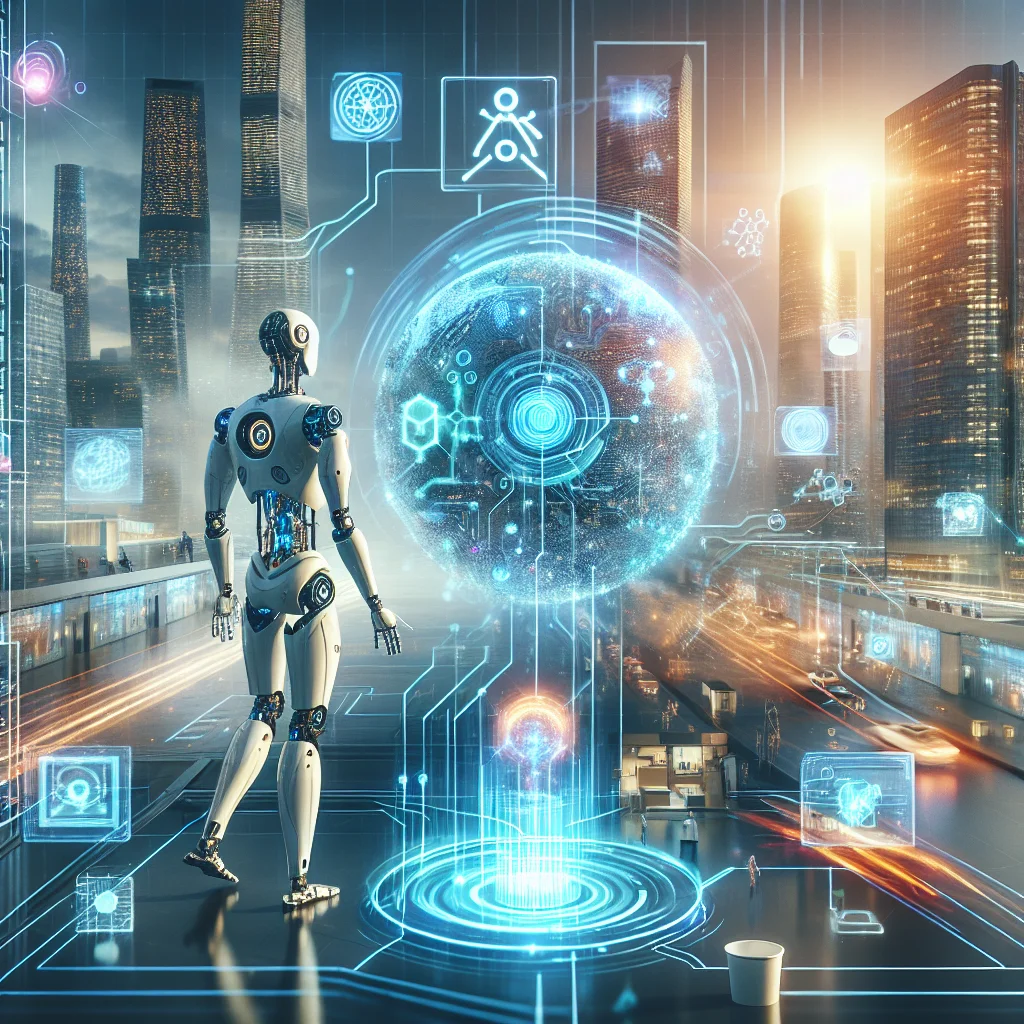Exploring the Latest AI Trends and Applications for 2025
March 15, 2025

Artificial Intelligence (AI) continues to revolutionize our world, shaping the way we live, work, and communicate. In 2025, AI technology is more advanced than ever, impacting various sectors and offering unique solutions to complex problems. This article will explore the latest AI trends, applications across industries, insights from industry experts, and invite you to engage with the evolving landscape of AI.
What Are the Latest Trends in AI?
The landscape of AI is constantly evolving, with several key trends defining its trajectory in 2025. One of the most significant developments is the rise of generative AI, where algorithms can create original content, such as art, music, and text, based on existing data. This technology is being leveraged in creative industries, including advertising and entertainment, allowing for innovative marketing strategies and unique product designs.
Additionally, AI ethics has gained prominence, addressing concerns about bias, accountability, and transparency in AI systems. Organizations are increasingly prioritizing ethical AI practices to earn consumer trust and ensure responsible deployment of technology. Emphasizing explainable AI, developers aim to make AI decision-making processes more understandable, thus reducing skepticism and enhancing user acceptance.
How Is AI Being Applied Across Industries?
AI's versatility shines through in its applications across various industries, offering transformative solutions. In healthcare, AI is streamlining diagnostics and personalizing treatment plans. Predictive analytics, powered by AI, is enabling early detection of diseases, resulting in improved patient outcomes and more efficient healthcare systems.
The financial sector also benefits from AI through enhanced fraud detection, customer service automation, and personalized financial advisory services. Chatbots powered by AI handle routine inquiries, freeing human agents to focus on complex issues. Furthermore, AI algorithms analyze user behavior, allowing companies to tailor products and services to meet evolving customer needs.
In the manufacturing domain, AI-driven automation is redefining production processes, maximizing efficiency, and minimizing waste. Robotics and machine learning models are optimizing supply chain management, helping businesses respond swiftly to market changes. Similarly, in retail, AI is revolutionizing the shopping experience with personalized recommendations, inventory forecasting, and smart logistics.
Insights from AI Thought Leaders
To enrich our understanding of the current AI landscape, we consulted insights from leading experts. Dr. Emily Chen, a renowned AI researcher, emphasizes the importance of collaboration between humans and machines. “As AI continues to advance, fostering human-AI partnerships is crucial. This collaboration can enhance decision-making while allowing humans to focus on creativity and emotional intelligence, attributes that machines cannot replicate,” she notes.
Similarly, Michael Ramirez, a technology strategist, highlights the significance of adopting an ethical framework. “Implementing ethical guidelines in AI development ensures that we build systems benefiting society, rather than exacerbating existing inequalities. Responsible AI is essential for sustainable growth,” he states.
What Should Consumers Consider with AI?
As industries increasingly adopt AI technologies, consumers must stay informed about its implications. Privacy concerns are paramount, as many AI systems collect vast amounts of data. Understanding data collection methods and consent practices can empower consumers to make informed decisions about their interactions with AI.
Moreover, skepticism towards AI is natural. Consumers should seek clarity on how AI-driven products function. Transparency in AI processes can demystify these technologies, enhancing user experience and trust. Engaging with organizations that prioritize ethical AI practices can also encourage responsible innovation.
Fun Facts About AI Adoption Worldwide
AI adoption varies dramatically across regions, and several facts illustrate its growing influence globally. In 2025, the Asia-Pacific region leads in AI investment, with countries like China and Japan heavily integrating AI into their national strategies.
Surprisingly, small businesses are also leveraging AI; recent studies indicate that 60% of small enterprises use AI tools for marketing purposes, enabling them to compete more effectively with larger corporations. Furthermore, AI is playing a critical role in climate change solutions, with algorithms that optimize energy consumption and reduce emissions gaining traction.
Conclusion
As we navigate through 2025, the latest trends and applications of AI continue to reshape our world. From enhancing healthcare and finance to transforming manufacturing and retail, the impact of AI is undeniable. Ethical considerations and human collaboration will shape the future of AI, ensuring technology serves the greater good. Staying informed about these developments will enable individuals and organizations to harness AI responsibly and effectively.
Back